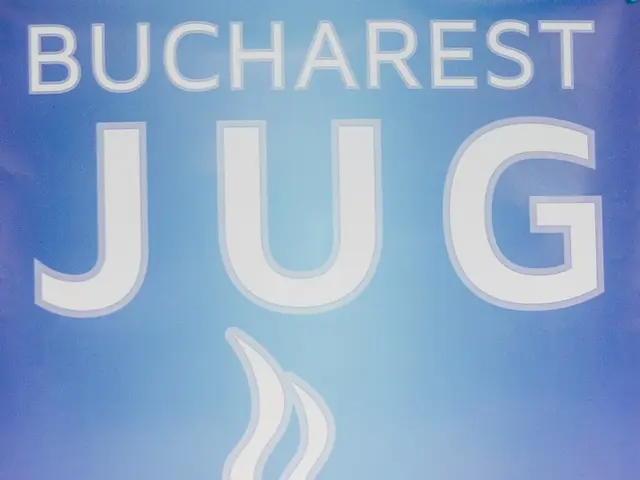Preparing Financially for the 2025 Season: Insights into the Savannah Bananas' Financial Strategy
**The Savannah Bananas, a minor league baseball team turned traveling exhibition team, are well-known for their quirky and family-friendly approach to the game. This unique approach has led to unprecedented growth for the team, but it comes with its own set of challenges in terms of business and finance.
Dr. Tim Naddy, the team's vice president of finance, has implemented a creative "diamond and dugout" approach to finance. This strategy involves cross-training the finance team in all aspects of the business, from baseball to food and beverage. By separating merchandise from the core operations, Naddy can get a clear view of the company's financial performance without there being any supplementation needed from merchandise sales.
As the Bananas kick off the 2025 season, they've expanded from minor league ballparks to selling out professional baseball and football stadiums across the U.S. Naddy credits the success of his finance team for keeping up with this growth, and he's confident they can have another record-breaking year.
Naddy sought mentorship from Rob Gerbe, former CEO of the United Football League, to help develop a long-term strategic vision for the finance function. Gerbe's finance team is already handling large venue control, data analysis, and scheduling, which has been invaluable for Naddy.
The Bananas have added new teams to their world tour, including the Bananas, Party Animals, Texas Tailgaters, and Firefighters. Naddy notes that the diamond (baseball) side of the business has a lot of potential right now, with the dugout (everything else) following suit as they grow. The challenge is to maintain margins so they never need to dip into merchandise sales to supplement operations elsewhere.
Naddy's finance team uses proprietary software and one-of-a-kind tech stacks for data analysis and management. For instance, their ticket system, Fans First Tickets, is a separate company that seamlessly tracks software costs. On the retail side, they use ShipBob with Shopify for inventory management and fulfillment of online orders. Logistical experts, like Clark Transfer, help with the loading and unloading of goods.
As the Bananas continue to scale, challenges like withholding taxes in different states, operating multiple venues, lease agreements, and utilities arise. Naddy and Gerbe have discussed creating a centrally located operation to avoid geographical scaling as they add new teams.
When forecasting costs for large events, Naddy observes differences in operational scale and crowd size. Even in smaller venues with all-you-can-eat offerings, the data gathered is valuable, but it comes with different purchasing and consumer behavior patterns compared to large venues. After last year's stadium tour, they noticed that while crowd size influences consumer behavior and purchasing patterns, those patterns are fairly consistent game after game.
Moving from QuickBooks to NetSuite last year was a big change for Naddy's team, and they found that everything they needed from NetSuite required an add-on or a partnership. One surprise was a metric called transaction volume. The threshold for this metric was set very high, and it was quickly exceeded by the team's transactions. As a result, they took their systems off NetSuite and only use it for basic accounting functions.
When it comes to communication, Naddy recommends teaching accounting coursework as a way to improve interpersonal communication skills. Finance leaders need to be storytellers, and teaching has helped Naddy develop these skills. He advises financial professionals who are struggling with communication to find a city or group of colleges and reach out to teach a course.**
- Dr. Tim Naddy, a finance consultant, implements a unique "diamond and dugout" approach for the Savannah Bananas, a traveling baseball team, to cross-train the finance team in all aspects of the business.
- The success of the Bananas in business and finance, marked by unprecedented growth and selling out professional stadiums, is largely attributed to the efficiency of Naddy's finance team.
- Moving forward into the 2025 season, Naddy aims to maintain tight margins to avoid any need for supplementing operations from merchandise sales.
- To develop a long-term strategic vision for the finance function, Naddy sought guidance from Rob Gerbe, former CEO of the United Football League.
- The Bananas have added new teams to their world tour, and Naddy sees potential for growth in the baseball division, with other aspects following suit.
- For data analysis and management, Naddy's finance team uses proprietary software and tech stacks, such as Fans First Tickets, ShipBob, and Shopify for ticket systems, online inventory management, and fulfillment.
- Challenges like taxes, operating multiple venues, lease agreements, and utilities arise as the Bananas scale, prompting Naddy and Gerbe to consider centralizing operations to prevent geographical scaling.
- In forecasting costs for large events, Naddy and his team gather valuable data about operational scale, crowd size, and consumer behavior patterns, although these patterns may differ between smaller and larger venues.
- To improve interpersonal communication skills and tell a compelling financial story, Naddy advises financial professionals to teach accounting coursework and reach out to cities or colleges to share their knowledge.









